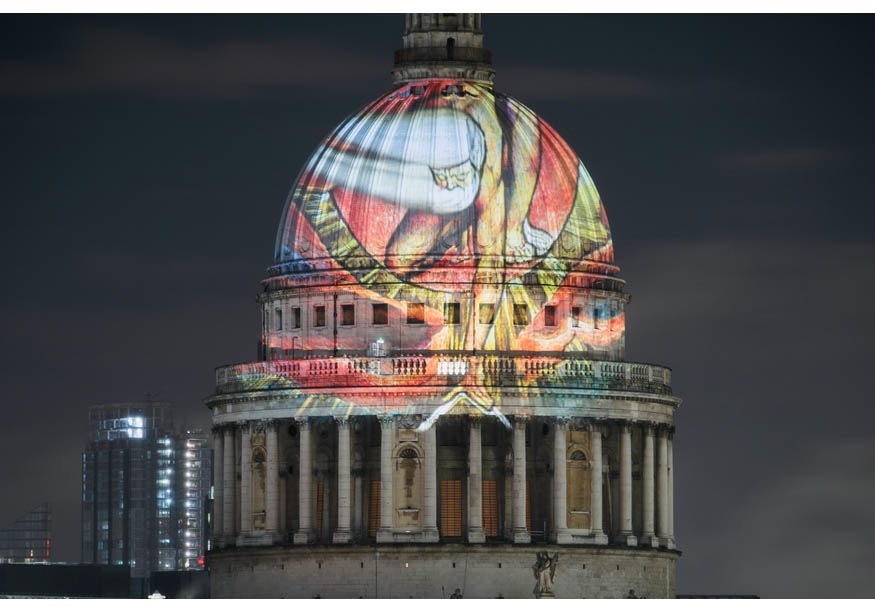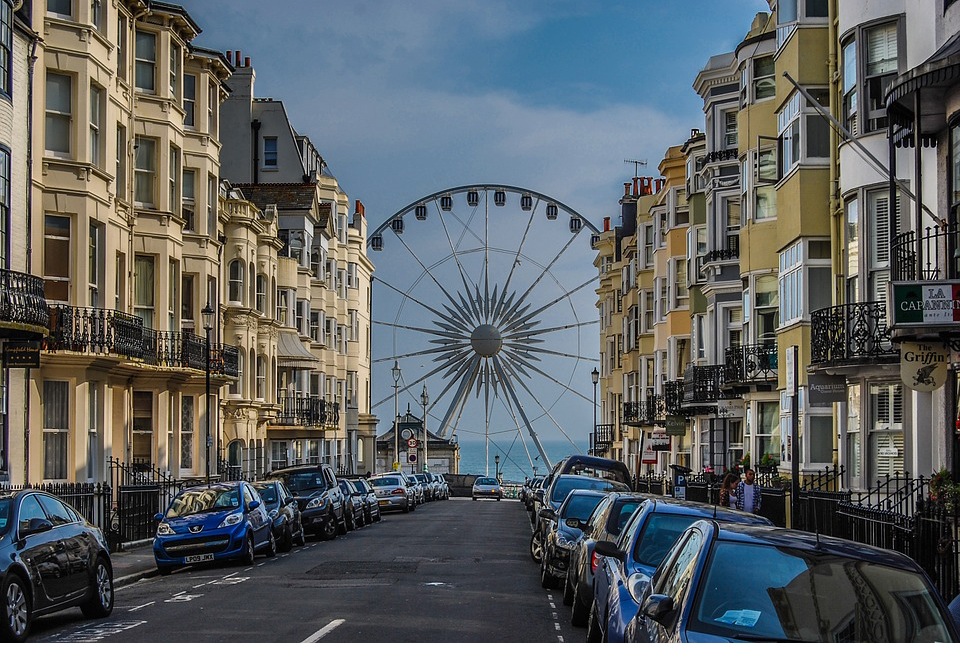ENGLAND'S NATIONAL POET?

Blake vs the world follows on from a much shorter book published in 2019 under the title William Blake now - why he matters more than ever and that seems to be a much better title for Higgs's overall project. Although unquestionably Blake had 'the world' against him during his life, Blake vs the world begins with the observation that the world now seems, remarkably if superficially, to have rallied to him. Higgs's earlier book was timed to coincide with a major Blake retrospective held in the Tate Gallery in 2019. In Blake vs the world he points out that not only did this exhibition sell 'close to a quarter of a million tickets during its four and a half month run' but all the reviews were ecstatic in their praise, from The Guardian - 'He blows away Constable and Turner - and that's with his writing hand tied behind his back' - to the Daily Mail - 'He was a nudist obsessed by sex who talked to angels for inspiration, but for all his madness, William Blake was one of our greatest artists.'
He goes on to show how Blake spans such a wide spectrum of British national culture, from the transgressive ('quoting Blake has been story shorthand for brooding villains who have depth, culture and sinister schemes') to the ultra-respectable in the use of his poem Jerusalem as a hymn that has become the real British, or at least English, national anthem. The degree of establishment support for what one would like to think of as an archetypal anti-establishment figure was shown when to promote the Tate exhibition his best known image - The Ancient of Days - was projected for five days onto the dome of St Paul's Cathedral: 'There are not many "unfortunate lunatics" [quoted from the only review of Blake's only exhibition - PB] who end their days in an unmarked pauper's grave yet go on to have their work used to crown the great temple of Britain two centuries later.'
Given the world's apparently universal acceptance of Blake, Higgs's task would seem to be, first, to show how the world has benefitted from this acceptance and secondly, perhaps, to show how the world could benefit even more from a better understanding of the man. With regard to the first point, his conclusion, in William Blake now, fills me, I have to admit, with horror:
'Because Blake’s influence has slowly saturated our culture, he has prepared us for the world we find ourselves in. We live in an imagined world now, and spend as much time in virtual space as we do in reality. We spend our evenings binging on story in the form of TV boxsets with 100-plus hours of narrative. Virtual reality and augmented reality are developing into powerful new ways to share our imagination with others.'
But perhaps Blake vs the world will help us with the second point - not so much what Blake's influence is, but what it ought to be.
THE IMPORTANCE OF LIVING IN BRIGHTON

Photo from Travellers Tales - https://www.ttgames.com/brighton-site/
In addition to the Blake books, Higgs is the author of Stranger than we can imagine (2015), an ambitious attempt to understand how the world (meaning chiefly the Anglo-Saxon world) changed through the twentieth century and The Future starts here: an optimistic guide to what comes next (2019). So he is someone who has given thought to the peculiarities of our present moment in time. In addition he has written a biography of Timothy Leary (2005), theorist of the uses of 'psychedelic' drugs and, in 2012, an account of the intellectual background of the band, the KLF, most famous for having set fire to £1 million in notes. And he lives in Brighton.
The importance of Brighton is explained in The Future starts here:
'In April 2018, the international relocation website Morehub analysed 446 cities across 20 countries in an effort to discover which was the most hipster city in the world. The results were calculated by analysing the number of vegan eateries, coffee shops, tattoo studios, vintage boutiques and record stores for every 100,000 residents ... The result was incredibly close, but Brighton was declared the most hipster city in the world, just beating the second-placed, Portland, Oregon ...
'Brighton is a place of independent traders, expensive property and self-employed freelancers, and a 2018 study named it the best city in the UK to start up a small business. The large amount of digital start-up companies here has led to it being called "Silicon Beach" ...
'It is here that you find the merry crew who are part of the network of relationships that make me who I am. They are the cast of my personal sitcom. They are people outside of family and work colleagues who I have no responsibility for, but who I choose to be trapped with regardless ...'
He is explaining the cast of mind and social circle which helped form his ideas as to the twenty-first century future, but this is not irrelevant to his ideas on Blake given that his theme is 'William Blake now.' There are a number of recurring reference points in Higgs's books. One of the key figures in the Leary biography is the English 'beat' writer Brian Barritt. Barritt was a personal friend of Higgs who wrote his obituary for The Independent in 2011. William Blake now is dedicated to him and he is quoted in The Future starts here. Aleister Crowley is a recurring figure in Higgs's books, starting with the Timothy Leary. It seems that Leary was introduced to his thinking by Barritt. He occupies more space in Higgs's account of what was important in the twentieth century than I would have given him but we do learn the interesting fact that at the end of his life, in 1947, he expressed admiration for Ayn Rand. Higgs's books, to give him his due, are full interesting tidbits of that sort. Robert Anton Wilson and his novel Illuminatus, Ken Campbell, the theatre director who put Illuminatus on the stage, and Alan Moore, English comic book writer and author of the huge Blake-influenced novel Jerusalem, also make fairly regular appearances. As do Einstein and quantum mechanics. The central argument of Stranger than we can imagine, turning largely on Einstein and quantum mechanics, is that in the course of the twentieth century we lost our 'omphalos' - a stable centre to our view of the world based, in Britain at least, on 'four pillars: Monarchy, Church, Empire and Newton.'